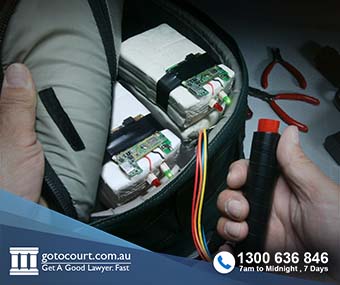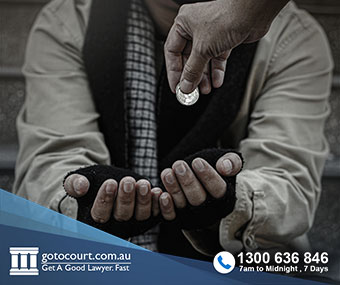Fraud in Australia
Every state and territory of Australia has offences involving dishonestly gaining property or a financial advantage. This is known as fraud, deception, or acquiring a financial advantage dishonestly. These offences are serious and can attract lengthy terms of imprisonment. This page deals with fraud offences in the different states and territories of Australia.
Fraud in Queensland
In Queensland, section 408C of the Criminal Code 1899 contains a general offence relating to fraud. This offence carries a maximum sentence of five years imprisonment, or 12 years in certain cases such as where the offence is committed against an employer. If the value of the property involved is more than $100 000 or the accused is carrying on a business of committing the offence, the maximum penalty is 20 years imprisonment.
A person commits fraud in Queensland if they dishonestly:
- Use property belonging to another person;
- Use property belonging to them but subject to a trust, direction or condition on account of another person;
- Obtain property from a person;
- Induce a person to deliver property to a person;
- Gaina benefit or advantage for a person;
- Cause a detriment to a person;
- Induce a person to do an act that they are lawfully entitled not to do;
- Induce a person not to do an act that they are lawfully entitled to do;
- Makes off without paying for a service lawfully provided.
Fraud in New South Wales
In New South Wales, section 192E of the Crimes Act 1900 makes it an offence to dishonestly:
- Obtain property belonging to another;
- Obtain a financial advantage or cause a financial disadvantage.
This is punishable by a maximum penalty of imprisonment for 10 years.
Under section 4B of the Crimes Act 1900, dishonesty is to be assessed according to the standards of ordinary people.
Obtaining by deception in the ACT
In the ACT, offences relating to fraudulent conduct are contained in the Criminal Code 2002.
In the ACT, obtaining property by deception is an offence under section 326 of the Criminal Code 2002. Obtaining a financial advantage by deception is an offence under section 332 of the Criminal Code 2002 in the ACT.
Both of these offences carry a maximum penalty of a fine of 1000 penalty units or imprisonment for 10 years, or both.
Obtaining by deception in Victoria
In Victoria, the Crimes Act 1958 makes it an offence to obtain financial advantage by deception (section 82) or to obtain property by deception (section 81). These offences can attract a penalty of up to 10 years imprisonment.
Fraud in Western Australia
In WA, the generally offence of fraud is contained in section 409 of the Criminal Law Consolidation Act 1913.
A person is guilty of this offence if, with intent to defraud, by deceit, or any fraudulent means, they:
- Obtain property from a person;
- Induce a person to deliver property to a person;
- Gaina benefit from a person;
- Cause a detriment to a person;
- Induce a person to do ac act that they are lawfully entitled not to do;
- Induce a person not to do an act that they are lawfully entitled to do.
Fraud is punishable by up to seven years imprisonment, or if the victim is aged over 60, up to 10 years imprisonment.
In WA, fraud can be dealt with as a summary offence where the value of the property involved is no more than $50,000. Lower maximum penalties apply to summary offences of fraud.
Deception in South Australia
In South Australia, the offence of deception is contained in section 139 of the Criminal Law Consolidation Act 1935. The offence is punishable by up to 10 years imprisonment, or 15 years if the offence is aggravated.
A person commits the offence of deception if they:
- Dishonestly benefits themselves or a third party;
- Dishonestly causes a detriment to a person.
Criminal deception in the Northern Territory
In the NT, the offence of obtaining property by deception is contained in section 228AH of the Criminal Code 1983 and the offence of obtaining financial advantage by deception is contain in section 228AK. Both offences attract a maximum penalty of 10 years imprisonment.
Acquiring a financial advantage in Tasmania
In Tasmania, the offence of acquiring a financial advantage dishonestly is a crime under section 252A of the Criminal Code 1924. It can attract the standard maximum penalty for indictable offences in Tasmania, which is 21 years imprisonment.
If you require legal advice or representation in any legal matter, please contact Go To Court Lawyers.
Recommended Resources
Criminal Resources
What Does “Beyond a Reasonable Doubt” Mean?
What Happens During Cross-Examination?
What Happens During Examination-in-Chief?
Can Police Enter Premises in Australia?
Fraud Laws By State
Fraud in Queensland
In Queensland, the offence of fraud is contained in section 408C of the Criminal Code 1899. Fraud is defined as dishonestly:
- Using property belonging to another person
- Obtaining property from a person
- Inducing a person to deliver property to another person;
- Gaining a benefit or advantage;
- Causing a detriment
- Inducing a person to do an act which they are lawfully entitled not to do;
- Inducing a person not to do an act that they are lawfully entitled to do;
- Making off without paying when payment on the spot is required
The maximum penalty for fraud is five years imprisonment, however, this increases to 14 years in certain circumstances, such as where the accused is a director of a corporation and the victim in the corporation.
Fraud in New South Wales
In New South Wales, fraud is set out in section 192E of the Crimes Act 1900. It is defined as dishonestly obtaining property or dishonestly obtaining financial advantage or causing financial disadvantage. It carries a penalty of up to 10 years imprisonment.
Fraud in Victoria
In Victoria, the main offences relating to fraud are obtaining property by deception under section 81 of the Crimes Act 1958 and obtaining financial advantage by deception under section 82. Both of these offences carry a maximum penalty of 10 years imprisonment.
The Crimes Act 1958 also contains offences of fraudulently inducing persons to invest money and procuring a sexual act by fraud.
Fraud in the ACT
In the ACT, offences relating to fraud include obtaining property by deception under section 326 of the Criminal Code 2002 and obtaining financial advantage by deception under section 332. Both of these offences carry a maximum penalty of a fine of 1,000 penalty units of 10 years imprisonment.
The ACT also has an offence of conspiracy to defraud, which is set out in section 334 of the Criminal Code and which carries the same maximum penalty of 10 years, or 1,000 penalty units.
Fraud in Tasmania
The Tasmanian Criminal Code Act 1924 contains a number of offences relating to fraud. These include cheating under section 252, obtaining goods by false pretences under section 250, dishonestly acquiring a financial advantage under section 252A, fraud in respect of payment for work under section 253 and computer-related fraud under section 257B.
All these offences carry a maximum penalty of 21 years imprisonment (as do all Tasmanian indictable offences, except where legislation specifies otherwise).
Fraud in South Australia
In South Australia, the offence of dishonesty is contained in section 139 of the Criminal Law Consolidation Act 1935. This offence consists of deceiving another person and dishonestly benefitting, or dishonestly causing a detriment to another. This offence is punishable by imprisonment for up to 10 years, or up to 15 years, for an aggravated offence.
Other South Australian fraud offences include dishonestly dealing with documents under section 140, dishonest manipulation of machines under section 141, and dishonest interference with merchandise under section 143.
Fraud in Western Australia
In Western Australia, fraud is an offence under section 409 of the Criminal Code Act Compilation Act 1913. It occurs when a person, with intent to defraud, by deceit or fraudulent means:
- Obtains property;
- Induces a person to deliver property;
- Gains a benefit;
- Causes a detriment;
- Induces a person to do an act that they are lawfully entitled not to do;
- Induces a person not to do an act that they are lawfully entitled to do.
A maximum penalty of imprisonment for seven years applies to this offence. If the victim is aged over 60, the offence is aggravated, and the maximum penalty increases to 10 years.
Fraud offences in WA can be dealt with in the Magistrates Court if the amount of money or property in question in no more than $50,000. A maximum penalty of two years imprisonment applies in the summary jurisdiction (or three years for an aggravated offence)
Fraud in the Northern Territory
In the NT, the offence of criminal deception is contained in section 227 of the Criminal Code 1983. The offence is committed when a person dishonestly obtains the property of another, or dishonestly obtains a benefit. A person guilty of this offence is liable to the same penalty as if they had stolen property of the same value.
Commonwealth fraud offences
There are also a range of Commonwealth fraud offences under the Criminal Code Act 1994. These include obtaining property by deception under section 134.1, obtaining financial advantage by deception under section 134.2 and general dishonesty under section 135.1.
If you require legal advice or representation in any legal matter, please contact Go To Court Lawyers.


























